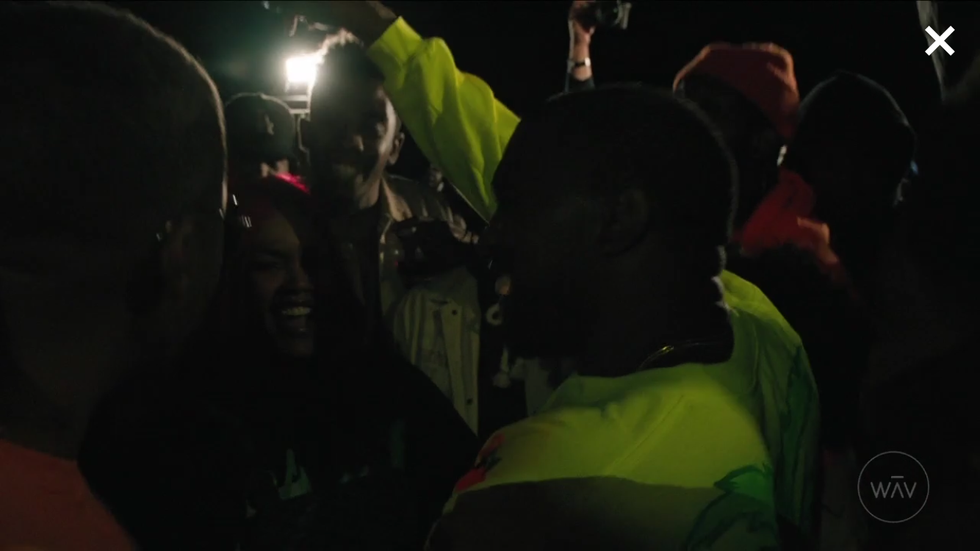Note: This article is NOT about Kanye's viewpoint or politics. It's purely about the music, the way I always try to approach Kanye.
Thursday night, May 31, 2018, at 9pm, I opened up a dubious app called "WAV" that I had downloaded onto my phone with the intent of deleting it the next morning. I hopped on to a livestream from Jackson Hole, Wyoming, where Kanye West was broadcasting his new album for his fans. The first thing I was surprised by was the audio quality, I thought I would just be getting a scratchy, rough inkling of Kanye's new music, especially coming through a livestream. But I was treated to a lucid first glimpse at the album. And boy oh boy, it was interesting.
"Ye" is one of Kanye's more consistent albums, and that's probably at least partly because of its scarce runtime. In a tight 23 minutes, Kanye proves that he still can make great and accessible music. And maybe the fact that it's so fleeting is what makes it so infectious and exciting.
Track by track, Kanye's working with a new sonic texture, but it doesn't feel like he's doing anything out there, anything especially new for a producer of his artistry. What he is doing is working with a rudimentary toolkit. Kanye's past work seems to make a statement with maximalism, with building an expanse of sound and flooding the listener's headphones with a vast world of music.
In "Ye", he almost does the opposite. On the opening track, "I Thought About Killing You", he raps over a warped sample for over 2 minutes before an 808 bassline kicks in to fill in the lower end, and even still it's almost another minute before the track fully drops. It's a slow burn, and even after it fully unfolds, it's relatively minimal by Kanye's standards, which is to say, still compelling and very well-executed.
"Yikes" and "All Mine" are quicker to the punch. The former is more reminiscent of the Kanye we all know and love, but both evoke more recent trends in hip-hop. "Wouldn't Leave" is a lovely fusion of his "808s and Heartbreak" percussive style and the gospel aesthetic he developed with "The Life of Pablo", and very heartfelt, the delivery is conversational instead of expositional, and I'm very compelled to listen.
And then "No Mistakes" hit. I was legitimately grinning when this track hit in the livestream, at the outset, it aesthetically feels straight out of his classic "Graduation" album. It's differently mixed, handled with a little more creativity and more abstractly structured, but it's beautiful nonetheless, and the first indication of Kanye really enjoying himself with this project as he seemed to with his earlier albums. A happy Yeezy is a good Yeezy.
"Ghost Town" is a down-to-earth soulful track that evolves into a full-fledged spacy ballad within the last couple of minutes, and feels like the poppiest song. It's repetitive in its last burst, but with music like that, is that an issue? "Violent Crimes" is cinematic and a dynamic mood shift from the album. It feels so insular when the rest of the album is more celebratory.
Overall, this album feels like a logical extension of the rough-around-the-edges aesthetic that Kanye developed on "The Life of Pablo" in 2016, but in a tighter and sparser fashion. Kanye seems to have proved that he's fit to be ignored with many of his controversial statements over the past few months. But musically, he's reminded us that he's still relevant as ever.
"Ye" doesn't shake up the groundswells of hip-hop as Kanye's albums have done in the past, but it develops his ethos even further as one of the most consistently high-quality creators of the 21st century. This is a solid contribution to his discography, and time will tell what it means in the grand scheme of Kanye's artistic history. But from the man everyone loves to hate, it's a nice and refreshing 20-minute journey that helps you kind of immerse yourself in his musical reach. And that's well worth it for me. Here's to a G.O.O.D. summer.

















